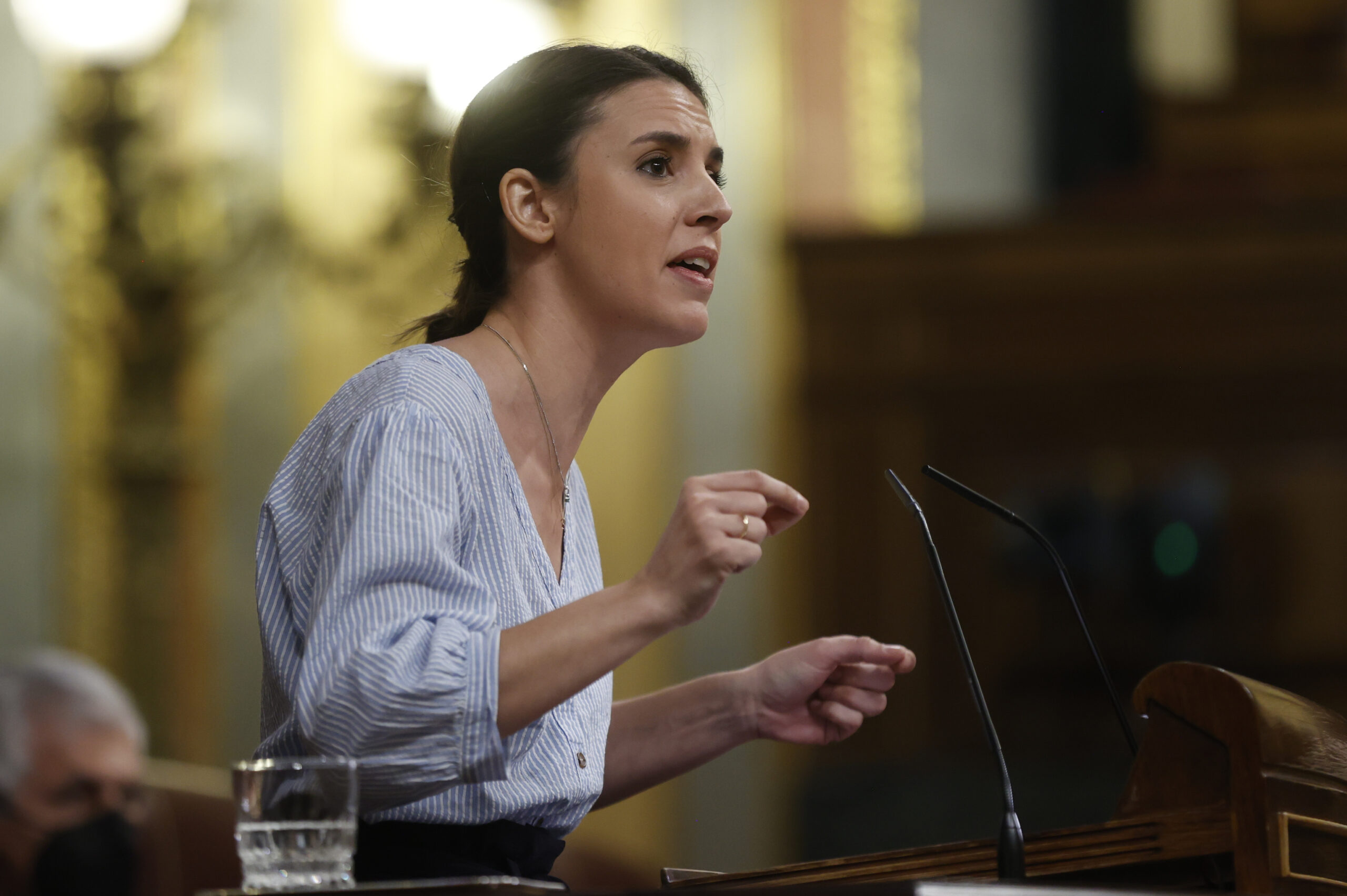The Government will finally promote sick leave for cases of painful menstruation that will be paid by the State “from the first day” and whose duration of days will be determined by a doctor. The announcement of the agreement has been made by the Minister of Equality, Irene Montero, after her department has imposed her proposal in the face of the reluctance that this generated in the socialist sector of the Executive, headed by Nadia Calviño.
After hours of negotiations, the measure will continue to be part of the bill for the abortion reform, which in addition to allowing 16 and 17-year-old girls to interrupt their pregnancy without parental permission, contains a catalog of initiatives related to sexual health and reproductive.
One of these measures is sick leave due to a painful rule, which has not only generated a great social debate, but also caused a strong division in the Government between the PSOE and United We Can, with the socialists warning that it could be a measure that ” stigmatize” women and be “harmful”.
Despite the commotion and the clash of ministers, sick leave due to painful menstruation is saved and will be part of the bill that will be presented next Tuesday to the Council of Ministers in the first round. “We are going to recognize by law the right of women with painful periods to a special temporary disability that will be paid for by the State from day one,” the Minister for Equality announced on social media.
“We are advancing so that it is no longer normal to go to work with pain and to end the stigma, shame and silence around menstruation. We are advancing in rights”, he celebrated.
The proposal is a pioneering measure so that the most painful periods are considered a reason to take time off work. The key is that it is a pain that is considered “disabling”. It wouldn’t fit for minor discomfort or just a headache.
Equality proposes that these rules, in which women suffer a very strong condition, be included in the catalog of causes of “temporary disability” so that doctors have legal protection to decree a period of sick leave. The initial idea was that it would last up to three days, but ultimately it will depend on the doctor’s criteria, who will dictate the exact number of days based on “what each woman needs.”
As in other cases, the cost of the leave will be assumed by Social Security and not by the company. And there will be no minimum requirement of days quoted as it happens with other temporary disabilities.
From the Ministry of Equality they explain that in no case is this for days of discomfort or mild discomfort, but for serious cases that, for the most part, are related to medical problems such as endometriosis or polycystic ovaries, which cause not only severe pain abdominal pain, but also symptoms such as headache, cramps, fever or diarrhoea.
“It would be like a flu,” Ministry sources explain. In other words, a woman who suffers from these pains would have to go to her health center so that her family doctor would facilitate her discharge. It would be that doctor who would prove that this condition is a cause of “temporary disability.” Just like when a person is having the flu and goes to the doctor to be able to take time off work because they feel sick.
A woman who suffers from disabling pain could today go to a health center if she feels very ill to try to access temporary leave due to her symptoms, but the fact of including it in the catalog of causes of temporary disability means putting an end to any arbitrariness and would give total security to women with these problems because, unlike the flu, period pain has a periodic factor.
Regarding the negotiations, from the Ministry of Social Security the sources consulted indicate that they do not comment on the regulations until they are approved.
Conforms to The Trust Project criteria
https://www.elmundo.es/espana/2022/05/13/627e7274e4d4d808388b45e9.html
















